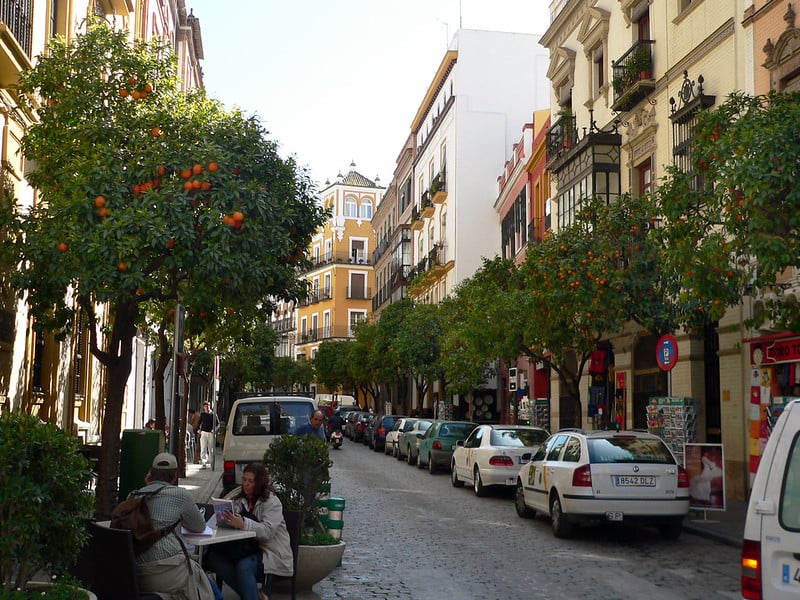
The over 48,000 orange trees that permeate all corners of Seville, Spain, not only fill the city's air with the pleasant smell of azhar, or orange blossoms, in spring; they also yield over 16,500 tons of fruit every winter. Though that gives the capital of southern Spain’s Andalusia region the bragging rights of being Europe's top orange-producing city, the fruit is too tart to be consumed fresh. While some of the produce is used to make marmalade and orange liqueur, most of it ends up in Seville's landfills. However, that may change soon thanks to an ingenious idea to use the oranges to produce clean energy.
The pilot program is being launched by the city’s council and parks department in collaboration with Emasesa, Seville’s water supply and sanitation division. Juice extracted from 38.6 tons of oranges will be left to ferment in an existing biogas facility. The methane released from the fermented liquid will be captured and used to drive a generator to produce clean power. The officials estimate the test run will generate about 1,500 kWh of energy — enough to run one of Emasesa's water purification plants. To ensure there is no waste, the orange skins, peels, and pulp will be used as fertilizer or compost.

“The juice is fructose made up of very short carbon chains, and the energetic performance of these carbon chains during the fermentation process is very high,” said Benigno López, the head of Emasesa’s environmental department. “It’s not just about saving money. The oranges are a problem for the city, and we’re producing added value from waste.”
If successful, by 2023, the city hopes to recycle all the oranges and add the electricity generated back to its grid. In trial runs, 1000 kilos (2200 pounds) of oranges yielded 50 kWh of clean energy — enough to fulfill the daily electricity needs of five homes. The project team estimates that if all the fruit is recycled, it will produce enough energy to power as many as 73,000 residences.

“Emasesa is now a role model in Spain for sustainability and the fight against climate change,” Juan Espadas Cejas, the mayor of Seville, said in the press conference announcing the pilot scheme. “This project will help us to reach our targets for reducing emissions, energy self-sufficiency, and the circular economy.”
The latest endeavor is among the many initiatives being implemented across Spain to achieve the country's goal of switching its electricity system to renewable sources by 2050 — and if everything goes according to plan, fully decarbonizing its economy shortly after that.
Resources: FastCompany.com, Guardian.co.uk,
